Recent Blog Posts
Signs You Should Consider Filing for Bankruptcy
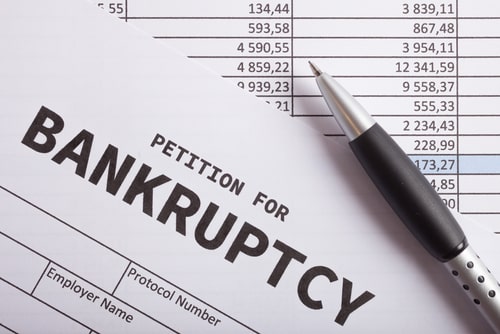 Deciding to file for bankruptcy is a significant and often difficult decision. It is important to carefully consider your financial situation and explore all available options before moving forward with the bankruptcy process. If you have found yourself in this situation, contact a lawyer to ensure your rights are protected
Deciding to file for bankruptcy is a significant and often difficult decision. It is important to carefully consider your financial situation and explore all available options before moving forward with the bankruptcy process. If you have found yourself in this situation, contact a lawyer to ensure your rights are protected
Here Are Signs Indicating It May Be Time to File for Bankruptcy
-
Overwhelming debt – If you find yourself struggling to keep up with your debt payments and are constantly falling behind, it may be a sign that your financial situation is unsustainable. Filing for bankruptcy can provide relief from overwhelming debt and give you a fresh start.
-
Constant harassment from creditors – If you are receiving constant calls and letters from creditors demanding payment, filing for bankruptcy can put an end to creditor harassment and give you peace from the persistence of creditors
Can a Postnuptial Agreement Cover Debt-Related Topics?
 Postnuptial agreements, also known as post-marital agreements, are legal contracts entered into by spouses after they are married. These agreements typically address financial matters, property division, and spousal support in the event of a divorce. However, one question that often arises is whether a postnuptial agreement can also cover debt-related topics. If you are looking to create a postnuptial agreement or have questions or concerns regarding your current one, contact a lawyer in Illinois and get the help you need today.
Postnuptial agreements, also known as post-marital agreements, are legal contracts entered into by spouses after they are married. These agreements typically address financial matters, property division, and spousal support in the event of a divorce. However, one question that often arises is whether a postnuptial agreement can also cover debt-related topics. If you are looking to create a postnuptial agreement or have questions or concerns regarding your current one, contact a lawyer in Illinois and get the help you need today.
Unpacking Postnuptial Agreements
At their foundation, postnuptial agreements are legally binding contracts that allow spouses to better understand their various financial rights in case of divorce or separation. These agreements can cover a wide range of topics, including debt-related matters
Do Ex-Wives Ever Pay Their Husbands Child Support?
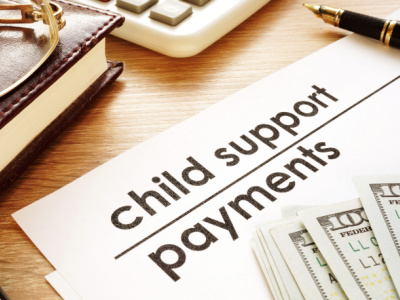 When parents of minor children separate or get divorced, there are several issues that need to be addressed. Of course, child custody - known in Illinois as “parental responsibilities” - is usually the first topic on a parent’s mind. Visitation - known in Illinois as “parenting time” - is usually next, followed closely by child support. Whether one parent will pay the other child support is determined by several factors, but the gender of the parents does not matter. If you have questions about child support, meet with an Illinois family lawyer today.
When parents of minor children separate or get divorced, there are several issues that need to be addressed. Of course, child custody - known in Illinois as “parental responsibilities” - is usually the first topic on a parent’s mind. Visitation - known in Illinois as “parenting time” - is usually next, followed closely by child support. Whether one parent will pay the other child support is determined by several factors, but the gender of the parents does not matter. If you have questions about child support, meet with an Illinois family lawyer today.
How is Child Support Calculated in Illinois?
Illinois child support payments are set using something known as the “income shares” model. The income shares model uses the income of both parents to decide whether one parent will need to pay child support to the other. Both parents are held responsible for providing financially for a child’s needs, so other factors will also be considered as child support payments are set. These include:
The Benefits and Drawbacks of Filing for Chapter 7 Bankruptcy
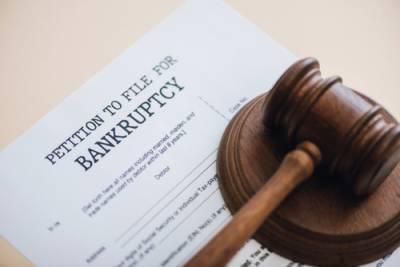 While Chapter 13 bankruptcy is an opportunity that is made widely available to most American adults who are struggling with debt, the option of filing for Chapter 7 bankruptcy is reserved for far fewer potential filers. Because qualifying unsecured debts can be discharged via a Chapter 7 filing without a requirement to pay back one’s creditors, the government reserves this opportunity for low-wage earners. If a debt-laden individual meets the means test eligibility criteria for Chapter 7 bankruptcy, they may find that this debt relief option has the potential to free them from significant financial burdens.
While Chapter 13 bankruptcy is an opportunity that is made widely available to most American adults who are struggling with debt, the option of filing for Chapter 7 bankruptcy is reserved for far fewer potential filers. Because qualifying unsecured debts can be discharged via a Chapter 7 filing without a requirement to pay back one’s creditors, the government reserves this opportunity for low-wage earners. If a debt-laden individual meets the means test eligibility criteria for Chapter 7 bankruptcy, they may find that this debt relief option has the potential to free them from significant financial burdens.
Primary Benefits
Once a Chapter 7 filing is received by the courts, an automatic stay is put into effect immediately. As a result of this legal protection, most creditors are prohibited from demanding repayment or pursuing debt-related legal action while a filer’s case remains unresolved.
Why Would a Court Not Discharge a Chapter 7 Bankruptcy?
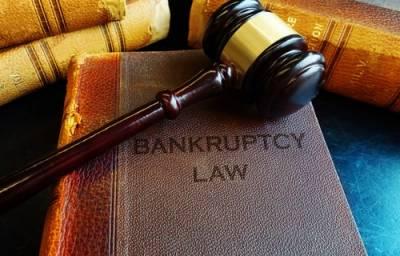 Bankruptcy is an essential financial protection that allows eligible individuals to get out from under the thumb of crushing, unmanageable debt. While declaring bankruptcy does have a significant effect on your credit score, it can also make a world of difference in your quality of life and allow you to start fresh. However, many people who file for Chapter 7 bankruptcy may be surprised to learn that a bankruptcy court could decide not to discharge a case, even after the debtor meets with the trustee and her creditors. To learn more about why a Chapter 7 bankruptcy might not be discharged, read on.
Bankruptcy is an essential financial protection that allows eligible individuals to get out from under the thumb of crushing, unmanageable debt. While declaring bankruptcy does have a significant effect on your credit score, it can also make a world of difference in your quality of life and allow you to start fresh. However, many people who file for Chapter 7 bankruptcy may be surprised to learn that a bankruptcy court could decide not to discharge a case, even after the debtor meets with the trustee and her creditors. To learn more about why a Chapter 7 bankruptcy might not be discharged, read on.
Reasons a Chapter 7 Bankruptcy May Be Denied
When someone files for bankruptcy, she must provide the bankruptcy court with a full and honest accounting of her financial situation. This includes the debtor’s creditors and the amount and nature of each debt, the debtor’s income and its source, the debtor’s property, and the debtor and her family's living expenses.
Can I Stop My Child from Visiting The Other Parent if He or She Is Not Paying Child Support?
 Child support is often a high-conflict area for divorced or separated parents. When the parent who is required to make child support payments cannot or will not pay, the parent receiving child support is usually left in a troubling financial position as he or she struggles to support a child on his or her own. In response, some parents threaten to or actually withhold parenting time from the parent who is behind in child support payments. However, this is illegal itself and can often backfire as a child support recovery strategy. Instead of taking matters into your own hands, work with an Illinois child support and child custody attorney who can help you explore your options and take legal action.
Child support is often a high-conflict area for divorced or separated parents. When the parent who is required to make child support payments cannot or will not pay, the parent receiving child support is usually left in a troubling financial position as he or she struggles to support a child on his or her own. In response, some parents threaten to or actually withhold parenting time from the parent who is behind in child support payments. However, this is illegal itself and can often backfire as a child support recovery strategy. Instead of taking matters into your own hands, work with an Illinois child support and child custody attorney who can help you explore your options and take legal action.
What Are My Options for Recovering Child Support?
Parents who need help getting the child support they are owed have a couple of options. The first is to work through the Illinois Department of Healthcare and Family Services (HFS), which is the governmental organization responsible for tracking down parents who do not pay child support and enforcing increasingly punitive sanctions on them until the support is paid. Unfortunately, HFS is often slow, very busy, and can be an ineffective way to get support in a timely manner.
Is Chapter 7 or Chapter 13 Bankruptcy a Better Choice for Me, Personally?
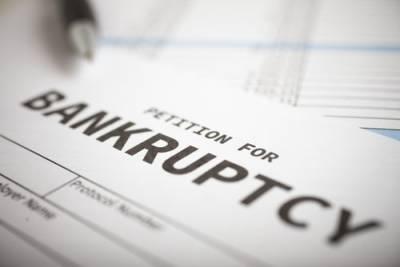 When debt has become an unmanageable burden, it is important to be proactive in seeking a solution. All too often, individuals think that if they work harder or spend a little less that unmanageable debt will suddenly become manageable. Unfortunately, due to influences like interest and unexpected life events, it is rare that simply “digging a little deeper” solves debt that has spiraled out of control. This is one of the primary reasons why the U.S. Bankruptcy Code exists. The opportunity to file for bankruptcy serves as an acknowledgment that overwhelming debt can be resolved with a little help along the way.
When debt has become an unmanageable burden, it is important to be proactive in seeking a solution. All too often, individuals think that if they work harder or spend a little less that unmanageable debt will suddenly become manageable. Unfortunately, due to influences like interest and unexpected life events, it is rare that simply “digging a little deeper” solves debt that has spiraled out of control. This is one of the primary reasons why the U.S. Bankruptcy Code exists. The opportunity to file for bankruptcy serves as an acknowledgment that overwhelming debt can be resolved with a little help along the way.
If you are thinking about filing for personal bankruptcy, you have two primary options to choose from. Chapter 7 bankruptcy is available to low-income filers. Chapter 13 bankruptcy is better suited for those who can make manageable monthly debt payments on their outstanding balances. Which option is right for you? That is an excellent question.
Should We Sign a Prenuptial Agreement Before We Get Married in Illinois?
 The time leading up to a wedding is one of great joy and excitement. While the planning can be stressful and overwhelming, both spouses usually look forward to what they anticipate will be one of the best days of their lives.
The time leading up to a wedding is one of great joy and excitement. While the planning can be stressful and overwhelming, both spouses usually look forward to what they anticipate will be one of the best days of their lives.
In the milieu of new love, it can be difficult to know whether to bring up the subject of a prenuptial agreement. After all, it hardly feels romantic to discuss the end of a marriage before it has even begun. However, the time before a marriage is not only the ideal legal time to sign a prenuptial agreement - it is also the best time to fairly negotiate an agreement that has the potential to offer essential protection to both spouses if they do eventually get divorced. Here are some factors to consider as you try to decide whether a prenuptial agreement is right for you.
How Are Mortgages or Auto Loans Handled in a Chapter 13 Bankruptcy?
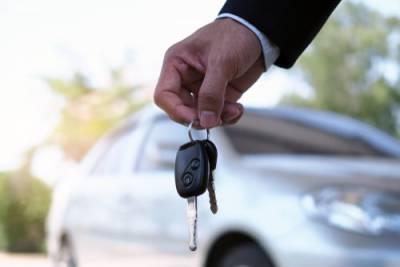 Debts can cause a great deal of stress and financial difficulty for a family, but bankruptcy can offer a way out of these situations. However, anyone who is considering bankruptcy may wonder how different types of debts will be handled and whether filing for bankruptcy could result in the loss of his or her property. The elimination of secured debts, such as a home mortgage or auto loan, will typically lead the lender to pursue foreclosure or repossess the collateral used to secure the debts. To avoid this, a debtor may need to determine how they will be able to become current on his or her payments while eliminating other debts.
Debts can cause a great deal of stress and financial difficulty for a family, but bankruptcy can offer a way out of these situations. However, anyone who is considering bankruptcy may wonder how different types of debts will be handled and whether filing for bankruptcy could result in the loss of his or her property. The elimination of secured debts, such as a home mortgage or auto loan, will typically lead the lender to pursue foreclosure or repossess the collateral used to secure the debts. To avoid this, a debtor may need to determine how they will be able to become current on his or her payments while eliminating other debts.
For debtors with secured debts, Chapter 13 bankruptcy is often the preferred option. This type of bankruptcy will require a person to make ongoing payments toward a repayment plan for several years, and if he or she can continue making payments toward secured debts, he or she will be able to retain ownership of his or her property. Missed payments, late fees, and other amounts owed to a lender may be included in a repayment plan, which will allow a person to become current on these loans. Chapter 13 offers some other benefits as well that may reduce the amount of a person’s debts and help him or her maintain financial stability in the future.
How Can I Stop Conflict over Custody Issues During Summer Vacation?
 While most parents getting divorced in Illinois include specific plans for the summer months in their parenting plan, scheduling conflicts are still common. Parenting is a difficult responsibility that requires flexibility and cooperation, but this is not always easy when you are working with an ex-spouse as a co-parent. Fortunately, with careful planning and communication, conflict during summer break can be minimized and even avoided altogether.
While most parents getting divorced in Illinois include specific plans for the summer months in their parenting plan, scheduling conflicts are still common. Parenting is a difficult responsibility that requires flexibility and cooperation, but this is not always easy when you are working with an ex-spouse as a co-parent. Fortunately, with careful planning and communication, conflict during summer break can be minimized and even avoided altogether.
Be Flexible But Set Reasonable Boundaries
One of the best parts about summer vacation is that many children do not have school, allowing the entire family extra freedom. Even for parents who are not particularly spontaneous, opportunities for fun activities are likely to arise last minute, making flexibility important. However, constantly changing agreed-upon plans can also be a source of enormous stress, especially for parents who struggle to communicate. It is important to know when you have plans set in stone, when you can allow yourself and the children some wiggle room to make last-minute plans, and when to say no to an ex who wants to change plans.

